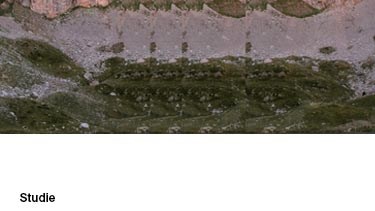Yieldcos bound for the stock market
A guest article by Dr Stephan Schulz and Dr Ramon Sieven
YieldCos are publicly traded companies that pool together in one portfolio facilities for the generation of renewable energy, such as wind and solar parks. They are designed to yield stable returns and dividend payments from the relatively certain profits of their portfolio. Particularly in the US and in the UK, this kind of company has been known in the market for some years now. After many initial ups and downs due to disruptions in financing and a lack of acquisition targets, YieldCos are meanwhile well established as an investment category in these countries. As yet, however, there are hardly any German companies that correspond to the model of a publicly traded YieldCo. Current considerations in the market to set up such companies in Germany have prompted the authors to take a look at the legal questions associated with doing so.
Growth vision
A central element of a YieldCo’s equity story is the fact that in many countries at least a significant portion of the YieldCo’s long-term portolio cash flow is guaranteed by the state or secured by so-called Power Purchase Agreements. Their stable revenues, low refinancing expenses and portfolio management synergies make YieldCos an attractive asset class. In order to live up to these standards, YieldCos regularly invest in new projects and are thus faced with two main challenges: They are dependent on access to a pipeline of suitable and financially attractive projects as well as on sufficient funding for the purchase of new projects on a continuous basis.
Acquiring a sufficient number of suitable projects poses a major problem at a time of increasing environmental restrictions, expiring government guarantees on tariffs and local resistance in many European countries. Some YieldCos address this bottleneck by cooperating with a project developer that has an existing project pipeline. Such sponsors are usually bound to the company by a cooperation agreement and they very often also hold shares in the company. Other YieldCos prefer to keep their structure independent, using several project developers to provide them with opportunities to acquire projects.
Cooperation with a sponsor
A common aspect of both versions is that the above mentioned kind of portfolio company usually does not assume any exploration and project development risks and does not purchase the plants before they are either operative or under construction, or at least not before all permits have been granted and all material contracts have been concluded. This is the feature that substantially differentiates YieldCos from conventional renewable energy enterprises, most of which take responsibility for the development of the plants as well.
The contractual arrangements for the cooperation between a YieldCo and the sponsor must be designed in a way that grants the company secure and, if possible, prioritised access to the sponsor’s project pipeline. A YieldCo’s success depends on getting offered projects that are suitable for their portfolio (regarding location, installed capacity and energy source). Ideally, already the cooperation agreement should arrange for participation rights regarding the choice of projects to be developed. Project developers, on the other hand, have a pronounced interest in the binding character of the contractual partner’s purchase commitment. However, a purchase commitment should not be too far-reaching, since there is a risk that the YieldCo will then be regarded as an investment asset, requiring registration or a license in accordance with investment law. This is not the case if the YieldCo’s business is characterized as operative. In order to be regarded as an operative company, management decisions with respect to the company’s ongoing operations, including the purchase and sale of projects, must rest within the YieldCo.
If the project developer participates in a YieldCo that has the legal form of a German stock corporation (AG), the purchase conditions must also comply with the German capital maintenance regulations, i.e. they must stand up to the arm’s length principle within the meaning of Section 57 German Stock Corporation Act (Aktiengesetz). Otherwise there is a threat of liability risks for the project developer and the members of the corporate bodies of the company. Obtaining a Fairness Opinion regarding the adequacy of the purchase price is an option that is worth considering in such a case. The fairness opinion could also be included in the public offer prospectus.
If the project developer holds a substantial share in the YieldCo, each transfer of projects following an IPO in a regulated market could potentially be considered a transaction with a related party. Since January 1, 2020, if a certain materiality threshold is exceeded, a transaction with a related party has the consequence that approval by the supervisory board is required and the transaction and its main parameters must be published.
A YieldCo raises the capital required for developing its portfolio by going public. At the time of the IPO, a start-up portolio with an adequate amount of generation capacity must already exist. How these projects are transfered to the YieldCo depends on the individual case: a spin-off pursuant to the German Reorganization Act (Umwandlungsgesetz) could be considered. This option, however, will often be ruled out due to the fact that the acquiring legal entity would be obligated to take over the existing liabilities of the transfering legal entity.
Special requirements for the prospectus
Other options are a capital contribution in kind in exchange for shares by a project developer or a purchase via a classic share deal or an asset deal. An acquisition by purchase comes with the question of how to fund the purchase price. External funding will generally not be considered. Entering into project purchase agreements whose execution will depend on the condition precedent of a successful IPO can be a solution. The YieldCo would then use the IPO proceeds for paying its purchase price debt.
Involving investors prior to going public is another way to finance a YieldCos portfolio development. Capital raised in funding rounds can be used to buy some initial projects for the YieldCo, until the company has reached an adequate size.
Due to the typical structure of a YieldCo, there are some special requirements to be taken into account when drafting the securities prospectus. The project pipeline, as a key component of the enterprise, must be described in the prospectus. This information is subject to due diligence by the transaction parties, even though it is legally owned not by the YieldCo, but by the sponsor. Prior approval by the sponsor to any review of the relevant documents and any respective publication must therefore be secured. Depending on when the start-up portfolio was acquired, it may be necessary to include in the prospectus so-called pro-forma financial information showing the effects of an acquisition concluded recently or still ongoing on the historic financial information of the issuer. The acquisition history of a YieldCo can also lead to the company being classified as a so-called issuer with a complex financial history. In such a case, the prospectus requires more far-reaching disclosure with regard to the start-up portfolio, in particular with regard to the historical financial information for the project companies.
In spite of the above mentioned benefits, some of the first YieldCos abroad experienced economic struggles in the past. A carefully constructed YieldCo, as outlined above, however, continues to have great potential in times of the Energiewende (Germany transforming its energy system) and given the trend towards sustainable investments.
This article was published on May 30, 2020 in the German financial newspaper „Börsen-Zeitung“.
Well
informed
Subscribe to our newsletter now to stay up to date on the latest developments.
Subscribe now








